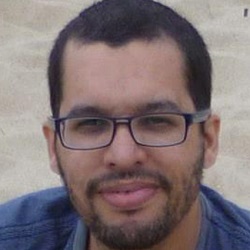Dr Antônio M da Silva, Language Coordinator in Portuguese from the Department of Modern Languages, is co-editing with Mariana A C da Cunha from the Federal University of Rio Grande do Norte, Brazil, a collection provisionally titled Human Rights, Social Movements and Activism in Contemporary Latin American Cinema.
Can film play an active role in denouncing human rights abuse and exposing the struggle for visibility of different social movements? Each in their own way, Latin American societies have experienced different cycles in implementing and enforcing human rights policies, and more often than not these rights have been strongly violated. Social and activist movements have seen the increasing use of film, video and digital media as a means of campaigning for social justice and protection of vulnerable citizens. Questioning to what extent cinema can impact social transformation can open up new avenues to understanding the subjects of human rights films, be they the oppressed or the violators. This edited volume seeks original contributions that bring to light the themes of human rights, social movements and activism in the Latin American cinema of the new millennium.
Contributions may include the ways in which human rights have been violated by the State, and also how the State has responded to the rise of social movements and activism; the effectiveness of social movements and activism; how transnational issues have had an impact on human rights in the region, such as migration, globalisation, economic shifts; or how cinema’s technology and aesthetics have had an impact on the depiction of these issues (for example the use of mobile phones, especially in the case of documentaries).
Particular areas of interest include, but are not limited to:
- Torture and state sanctioned violence and terror
- Memory, trauma and the archive
- Environmental and indigenous rights (i.e. in the Amazon)
- Climate change and human rights
- Public protests and resistance movements
- Armed revolutionary groups
- Marginalised groups: women’s rights (reproductive rights), LGBT rights, children’s rights, migrants’ rights (internally displaced, refugees)
- Modern slavery
- Contested spaces and collective militant subjectivities
- Social change, justice, reparation and reconciliation
- Activism and advocacy
- The rise of human rights film festivals in Latin America.
Chapter length: 5,000 to 6,000 words (footnotes and bibliographical references included).
- Please send your proposal (title, 200-300-word abstract in English, up to 5 bibliographical references, and brief biography) as electronic attachment to the editors (humanrightslacinema@gmail.com) by Saturday 10 December 2016.
- Notifications of interest in the contribution: by Saturday 10 December 2016.
- Completed first draft of chapters due Tuesday 28 February 2017. (Final acceptance will be notified upon completion of blind review of first draft of chapter by Saturday 15 April 2017).
- Final submission (after redrafts) Tuesday 1 August 2017.
- Expected publication: 2018.
Please note that these and future deadlines are strict due to negotiations with the publisher.

